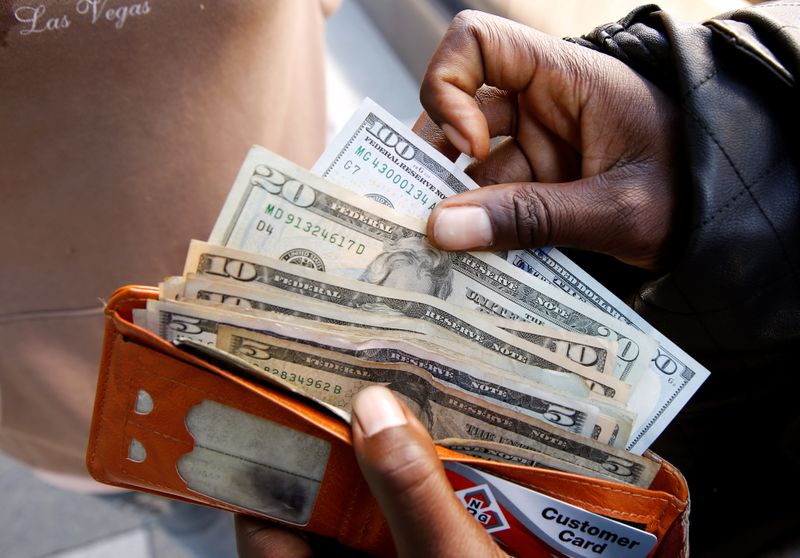By Olga Cotaga
LONDON (Reuters) - The U.S. dollar stayed soft on Tuesday amid expectations that the Federal Reserve may cut interest rates this year to curb downside pressure on the economy caused by China's coronavirus outbreak.
The dollar initially rose as the virus spread further around the world, with investors eyeing all U.S. assets as safe-haven investments. However, money managers now think the Fed would be more likely to easy monetary policy and cut rates given that it benefits from the biggest room to do it.
Against a basket of currencies the dollar was 0.2% weaker at 99.19 (=USD), drifting away from the three-year high reached last week. However, without much good news on the virus, few expect the dollar to give back too much of its recent gains.
The euro was last up 0.1% at $1.0863 (EUR=EBS), drifting away from the three-year low it fell to last week, sending it below $1.07 as money flooded into the safe-haven dollar.
Market gauges of implied volatility in euro/dollar eased off a bit on Tuesday after rising to their highest since October on Monday.
Japan's Prime Minister Shinzo Abe said on Tuesday that clusters of coronavirus cases had emerged in the country and that the government would take stronger steps to fight contagion, giving Asian investors another reason to stay cool on the yen, which has been tripped off its safe-haven status recently.
The yen last traded up 0.2% at 110.53 per dollar .
China, meanwhile, reported a rise in new coronavirus cases in Hubei province, the epicentre of the outbreak, even though the rest of the country saw a fourth-straight day of declines.
South Korea, which has the most virus cases in Asia outside China, reported 60 new cases on Tuesday, increasing the total number of infected patients there to 893 - leaving few to expect the region's currencies to do more than hold steady for now.
China's yuan was last up 0.2% at 7.0225 per U.S. dollar in the offshore market, a five-day high.
Lee Hardman, currency analyst at MUFG, said he expected "some downside risk for the U.S. dollar" going further given the Fed's potential dovish shift in policy.
Market participants continue to build up expectations for further Fed easing, with money markets pricing in a 25 basis points cut for the meeting in June.
For the year as a whole, traders expect the central bank to lower rates to between 1% and 1.25%, down from the current 1.5% to 1.75% range.
